
This article is more than
1 year oldA potential TikTok ban is history repeating itself for Australian social media influencer Jeremy Franco.
Franco recalled India’s 2020 decision to ban TikTok and what it meant for him as an influencer as social media creators around the world brace the platform’s biggest market to potentially vanish.
“I’ve kind of felt that already with what missing an entire market can do and how it can impact your content and your views,” the creator, who is himself of Indian descent, told news.com.au
“So if you throw in the US, it really will have a ripple effect all throughout the globe.”
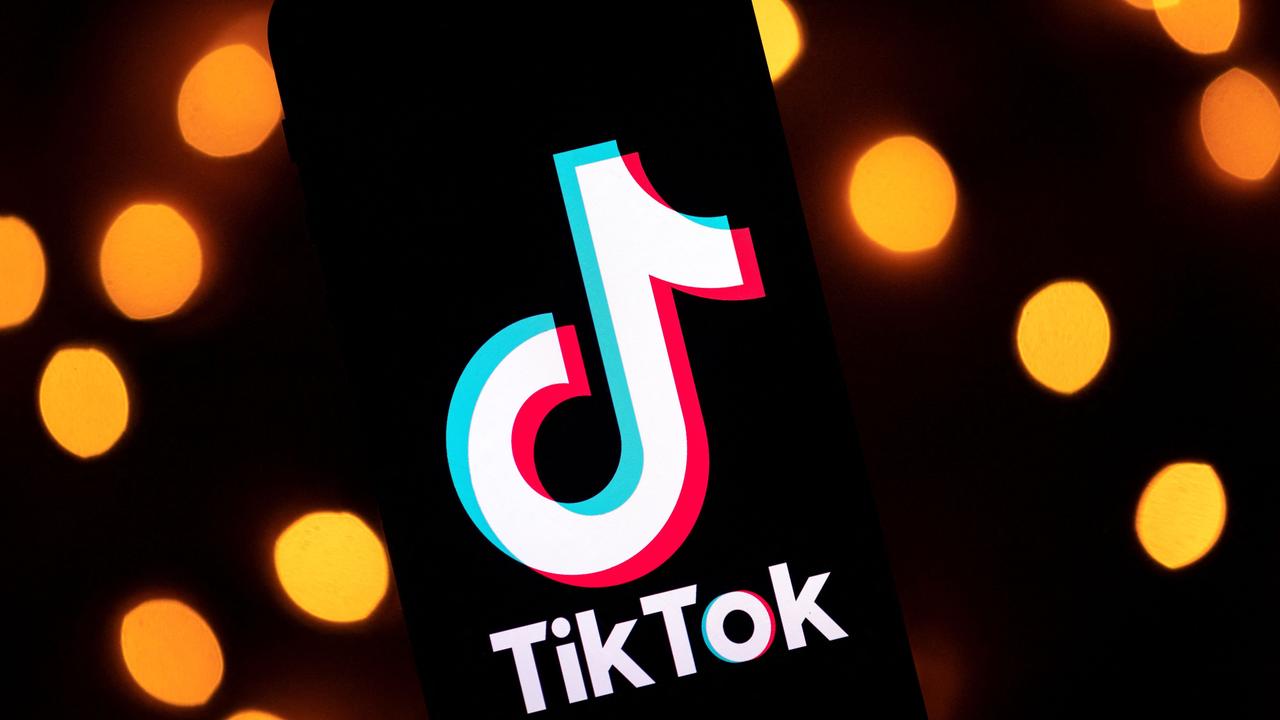
Franco, despite much of his content being targeted at Australian and South Asian audiences, said the biggest share of his 530,000 followers and views come from users in the States.
It’s now feared countless Australian influencers and businesses who have turned TikTok into a lucrative means of income won’t ride out a nationwide US ban scot-free, should it come to fruition.
The Chinese-owned social media giant is close to disappearing in the US after the House of Representatives voted to pass a bill that could ban the app.
The move came as many Western countries fear that the hugely popular social media platform could threaten national security, a claim TikTok’s parent company ByteDance has denied.
The legislation still has to pass the Senate, but US President Joe Biden has said he is prepared to sign it into law if both houses of Congress give it the green light.
The new law would ban TikTok from US app stores unless its American operations were separated from its Chinese owner ByteDance.
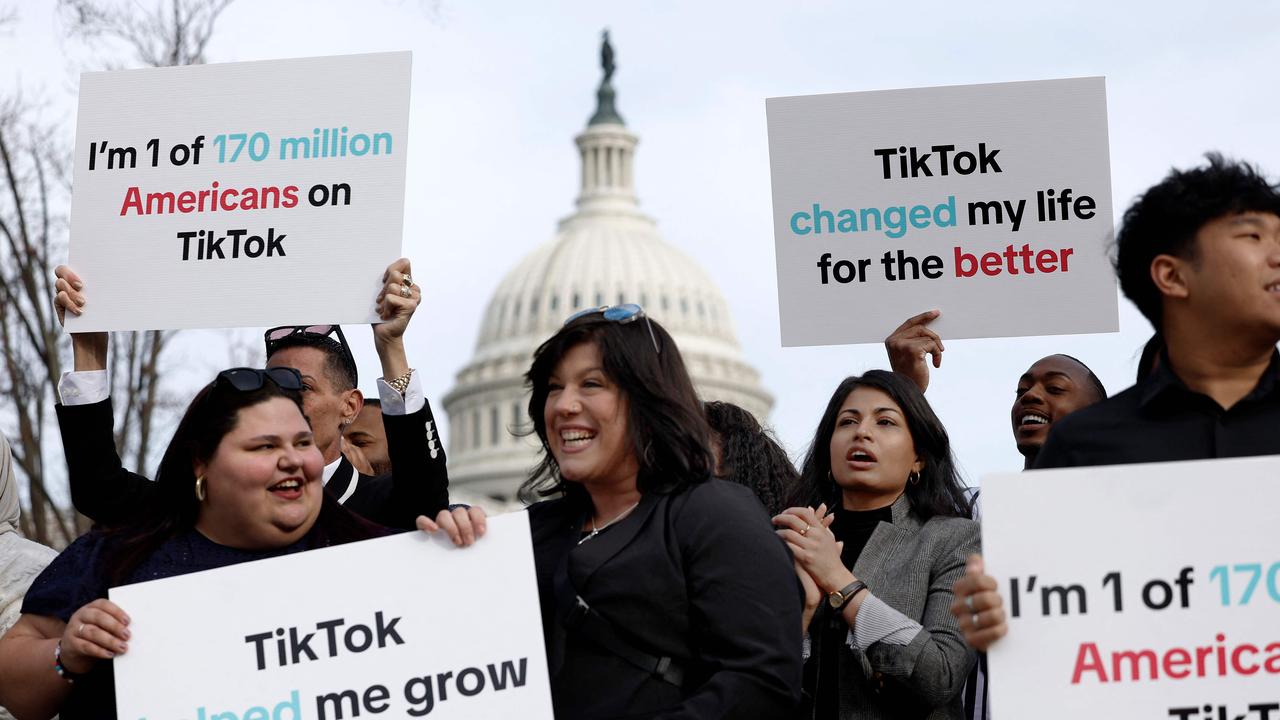
Beijing has already warned the US that any action on TikTok would amount to “bullying” and would “come back to bite the United States itself”.
However, Australian insiders think local TikTok-reliant will be impacted, and the severity will vary.
Franco, whom hundreds of millions have viewed on the platform, said the vibe among his associates in the US was one of panic and outrage.
“Feel like every year they have the same conversation, but this time, it’s getting a bit serious,” he said.
“Creatives are really stressed, and the small businesses are crazy stressed because a lot of the businesses nowadays really do rely on TikTok and have grown from TikTok or have started from TikTok. So, it’s pretty wild on America’s part.”
He said the absence of US TikTok and its stars will leave the social media space “feeling like an empty room”.
Scary move could cost Aussie influencers big
Unlike the US, UK, and others, Australian accounts don’t make money directly from TikTok but rather through paid partnerships, brand deals, and management deals.
Sydney’s Nariman Dein, 22, shot to viral stardom in recent years solely through TikTok, unlike others who gained notoriety first on other platforms.
She said 20 per cent of her 900,000 followers are from the US, with brands in the past enlisting her to market American brands to her American followers.
She expects such opportunities will disappear if the ban goes ahead.
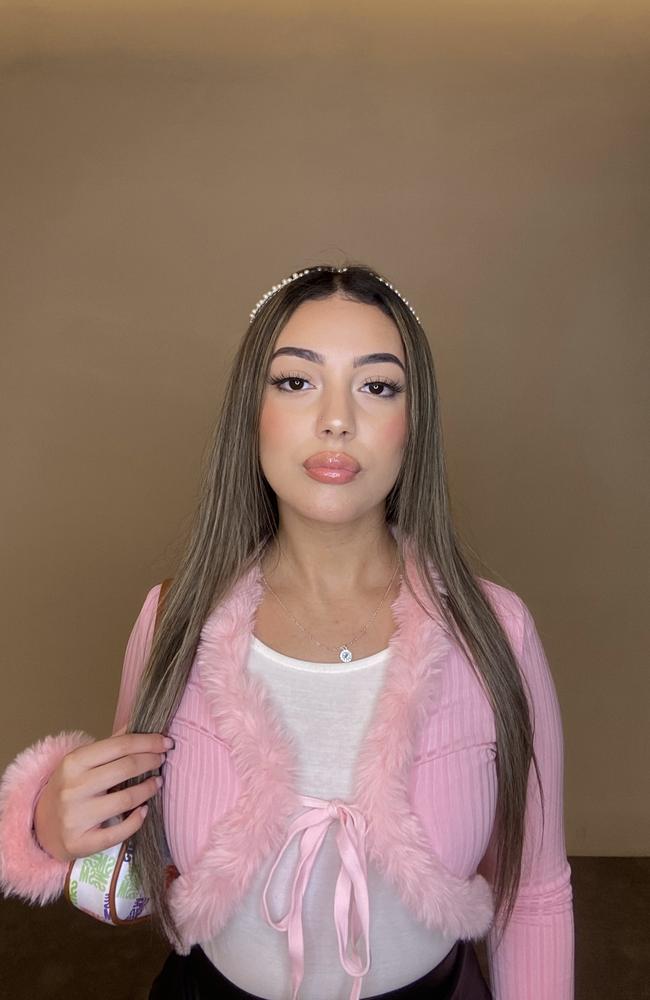
An average Aussie with a million TikTok followers can expect a market rate upwards of $6,000 per brand partnership video, making it a highly lucrative job.
“I put a lot of hard work into my videos and into developing characters, and I have a big American audience that loves them,” Dein told news.com.au.
“It’s scary not knowing what’s going to happen – are they going to just be removed from my page completely?”
“If the US ban happens, I’m not going to get them at all.”
Dr Brent Coker, a University of Melbourne lecturer specialising in digital and viral marketing, predicts involved Australians will see significant “downstream” impacts.
He expects the digital economy of influencers and marketers to be challenged if the US ban is enacted.
He said that TikTok influencers are highly sought-after in Australian marketing circles compared to Instagram, its closest competitor.
@nariman.dein #comedy #westernsydney #fyp #newborn #baby #babies #mom #parents #funny ♬ Clarinet main lazy atmosphere song(878137) - Yukito Hitoe
“Influences that are on TikTok have way higher engagement, their content is usually better, and they have a stronger, larger following,” he explained.
Ultimately, it’s content creators who place an emphasis on using TikTok who are likely to suffer.
“That’s their job, and that’s one of the dangers of being an influencer; you’re at the mercy of these larger companies that control your platform,” Dr Coker said.
“These companies can block their accounts whenever they want, and the influencers can’t do anything about it, which can destroy their business.
“I think they’re going to suffer.”
A cultural ‘bridge’ lost
There was a consensus among Dr Coker, Franco and Dein when it came to TikTok’s cultural significance.
All three said the Australian social media landscape is closely related to the American one through a two-way flow of cultural influence.
“People in the US and Europe are interested in how we live here in Australia, so they follow us; we’re a bit of a curiosity, and our influencers do tend to have a strong international following,” Dr Coker said.
“A lot of the trends and the cultural value comes from the US and if that’s no longer there, then yeah, there will be local users who may decide to not use it as much.”
@jezbreezy her hand always needs to be touching something #creatorweek ♬ original sound - Jeremy Franco
“TikTok would suffer a loss of users from outside of the US as a result.”
Franco agreed, stating, “When you think about some of the top creators, the top trends, the top music on the platform, it all comes from the US.”
Dein felt TikTok had “bridged a cultural gap” between the US and Australia.
“TikTok really brought the Australian culture to America,” she said.
“Before then, no one really knew anything about Aussie slang or Aussie comedy.”
“They had a lot of all these crazy stereotypes about us; now they see the reality.”
How disappearing Americans will impact your feed
The US has the single largest share of TikTok’s audience with over 135 million users – a whopping 38 per cent more than second-placed Indonesia’s 99 million users.
Australia does not even chart in the top 10, with roughly 9 million active users.
However, a US exodus would likely result in a drop in viewership for some Australian accounts. Thus, Dr Coker explained, marketing power would also decrease.
“The more popular you get as an influencer, the more international your audience gets,” he said.
He said while local versus international viewership varies broadly among Australian creators, much of their content consumed abroad.
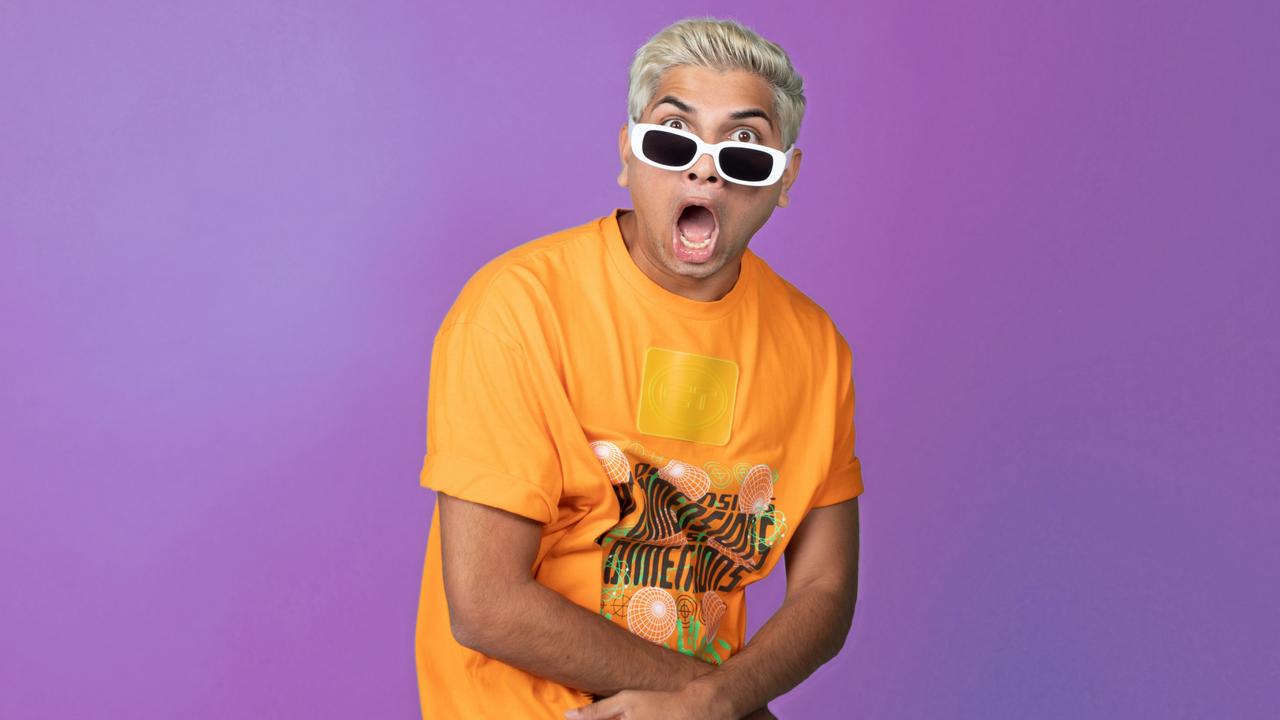
“Influences like comedians and other young people with a loyal following – their percentage can skew towards international, up to 50 per cent, sometimes more,” he said.
Australian brands also heavily scrutinise influencers when considering commercial partnerships using a broad range of metrics – a practice the US ban may also compromise.
He suspects brands will also veer away from TikTok and favour other platforms if the US takes the radical step to ban it.
More broadly, Dr Coker questioned: “If they remove the US market, that might be enough for it to sort of go away and fizzle out.”
Go local and diversify
Dr Coker, who frequently consults with the industry, suggested that the best course of action for TikTok influencers is to spread their content across social media platforms.
“I feel like a lot of brands are just going to go back to Instagram because Instagram works, and a lot of brands, when they started using TikTok, didn’t throw Instagram out,” he said.
“They’re kind of using a mix, so we get clients, for example, that want two influences from Instagram and two from TikTok.”
“I imagine that they will say: “we just want four influencers from Instagram from now on.”
“Other platforms will rise in prominence as a result of this, especially for influencer marketing.
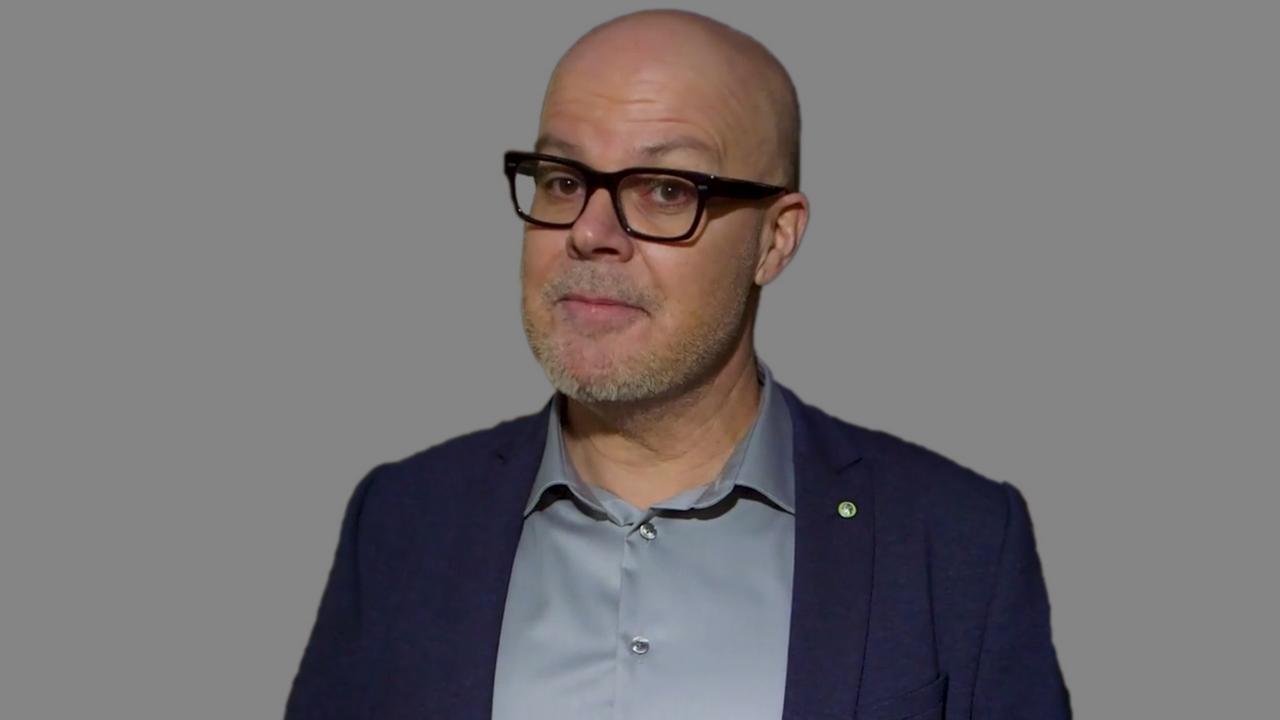
“There are other platforms that are in some cases way more effective, like Twitch or even Spotify podcast.”
Franco agreed, stating: “Australians will potentially hop off the platform.” “You think about where the Americans will go; they’re going to hop over to (Instagram) Reels or (YouTube) shorts.”
Franco, who has recently branched into traditional media like radio, also recommended diversification.
“(Influencers tend to) rely on one algorithm, one algorithm that you have no control over, and as we can see right now, it is very shaky,” he said.
Dein added: “I have been trying to grow all platforms because if that’s my income, and that’s where my community is, if that’s gone tomorrow, I’m going to have to start from scratch again.”
-With Benedict Brook